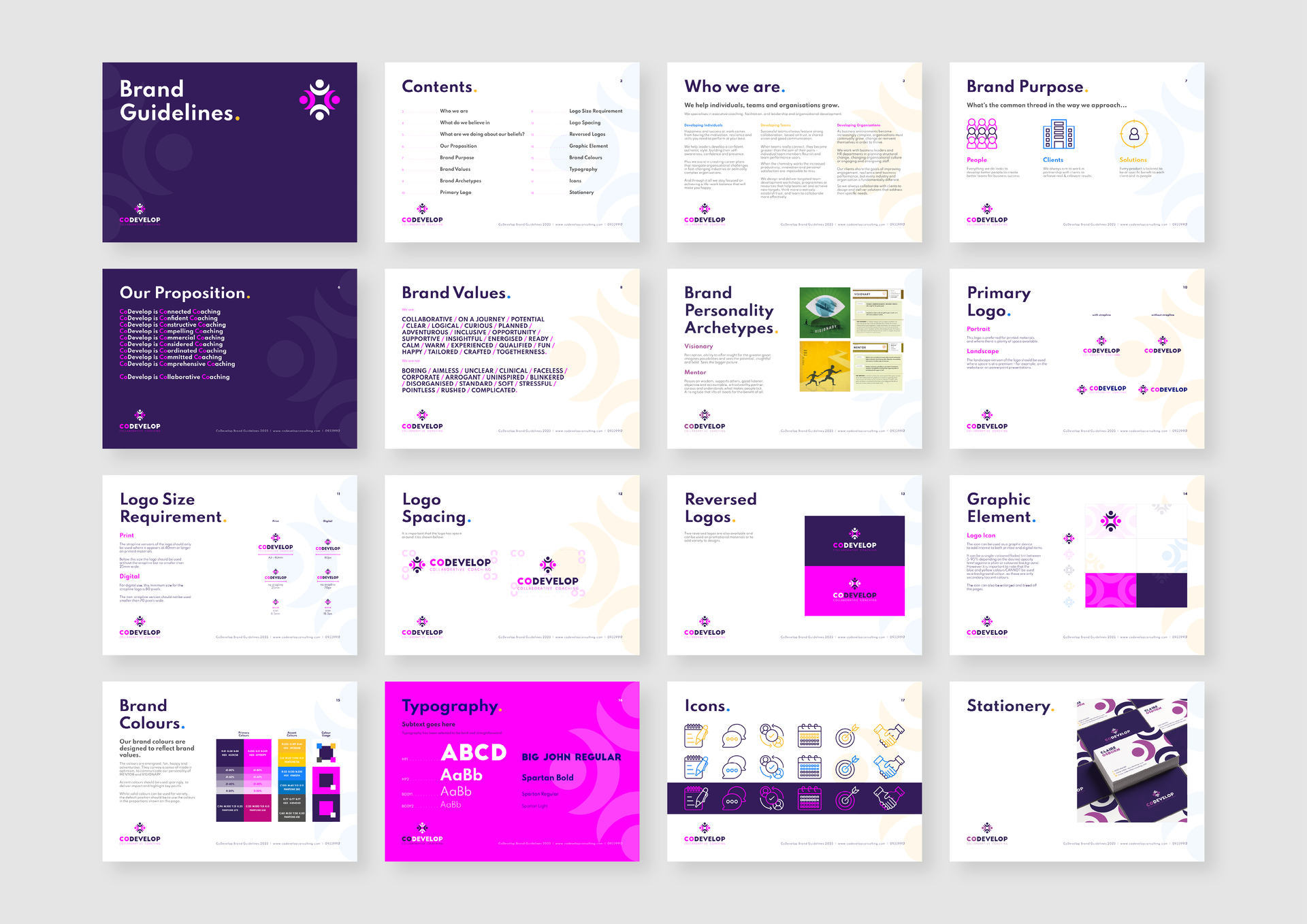Navigating the Future : The Imperative of Collaborative Leadership
Here at Co Develop we believe that the world works better when we all work together. We have been talking a lot recently about the power of collaboration because we see first hand, every day, what can be achieved by bringing people together to solve challenges, create better solutions and make things happen.
So what does this mean for leaders and their teams?
Today, we dive into the essence of leadership that we think defines success in the contemporary world - Collaborative Leadership. We have learnt from our clients that in order to best serve patients and as a result of recent events in the Pharmaceutical industry, aligning with the principles of collaborative leadership becomes not just a choice but a necessity.
Drawing inspiration from the insights of the Oxford Leadership group paper, "Collaborative Leadership: Engaging collective intelligence to achieve results across organisational boundaries", let's explore why being a collaborative or enterprise leader is crucial for you and your team in today's dynamic landscape and unearth practical actions you can take.
Why Collaborative Leadership matters
In the fast-paced and interconnected world we inhabit and in the complex matrix structures of most of the Pharmaceutical industry, the traditional, hierarchical model of leadership is becoming obsolete. The challenges we face, from global pandemics to complex economic landscapes, demand leaders who can navigate ambiguity, foster innovation, and unite diverse teams. This is precisely where collaborative leadership comes to the fore.
Adapting to Complexity
The Oxford Leadership group paper emphasises the need for leaders to engage collective intelligence to tackle intricate challenges. Collaborative leaders are adept at navigating complexity by tapping into the diverse expertise within and outside their organisations.
Breaking down silos
Our clients consistently tell us that silos are barriers to progress and ask for our help in breaking them down. Collaborative leaders dismantle these silos, fostering cross-functional working and finding ways that information can flow seamlessly across departments.
Fostering innovation
Collaboration is the breeding ground for innovation and change. Collaborative leaders create a culture that encourages the exchange of ideas, sparking creativity and driving continuous improvement. Rather than protecting their own ideas, they generously share them with other teams and encourage them to build on them together.
Thriving in Change
The ability to adapt and thrive in times of change is a hallmark of collaborative leadership. Leaders and teams who are working together and connected both within and outside their organisations can spot opportunities for change first. They take inspiration from what they learn from others to drive the changes that will help them succeed.

Practical ideas for being a Collaborative Leader
Keep an ‘open door’
Communication is the backbone of collaboration. As a collaborative leader, prioritise open, transparent communication. Encourage team members, colleagues, other departments and your customers to share ideas, concerns, and feedback freely.
Seek out different thinking
Actively seek diversity in your teams. A variety of perspectives fosters creativity and problem- solving. Ensure that all voices are heard and valued and celebrate exchanges of different ideas.
Facilitate Cross Functional Collaborations
Spend time breaking down the walls between departments rather than complaining about them. Create opportunities for teams from different functions to collaborate on projects. This not only enhances the collective intelligence of the organisation but also breaks down silos.
Keep learning and help your teams to do the same
In a rapidly changing world, a learning culture is vital. Encourage continuous learning and development among your team members. Have regular development conversations, both formally and informally. Encourage mentorships, attend conferences, get involved in projects outside of your area – whatever it takes for you to stay up to date with trends and generate new thinking.
Lead by example (especially with your peers)
Model the behaviour you wish to see. If you want a collaborative culture, exemplify collaboration. This means being open to feedback, valuing others' contributions, and actively seeking input from your peers and teams, asking for help.
Be clear on your Shared Vision
Collaborative leaders unite their teams under a shared vision and tell others about them. Clearly articulating the goals and values that bind their team together and sharing them with others help cement the need to work together. This shared purpose serves as a guiding light.

What the Pharmaceutical Industry can learn from Supermarkets
We feel very privileged to work within the fast paced world of the Pharmaceutical industry where the ethos of collaborative leadership has emerged as a transformative force to help patients. While very different, we think this mirrors the resilient strategies witnessed in the UK supermarket sector during the COVID-19 pandemic. Just as supermarkets united to ensure consistent access to essential goods, pharmaceutical leaders have increasingly recognised the power of collaboration in expediting drug development, distribution, and healthcare innovation.
Drawing parallels from the agility and cooperation seen among supermarkets navigating supply chain disruptions, we have worked with pharmaceutical teams who are increasingly embracing collaborative models, fostering partnerships between research teams, healthcare providers, and regulatory bodies. The adaptability and shared efforts witnessed in supermarkets during the pandemic offer invaluable lessons in prioritising open communication, mutual support, and knowledge-sharing, ultimately amplifying their capacity to respond effectively to their customer’s needs.
As we chart the course for the future at CoDevelop , the principles of collaborative leadership will guide our journey. It's not just a leadership style; it's a mindset. Join us on this transformative journey where the power of collaboration leads to new horizons.
In the end though, all of it comes down to one simple thought: the world works better when we all work together.
Specialising in executive coaching, team facilitation, and leadership development, we have proven for over 20 years that collaboration is key in business; creating high performing teams & powerful working environments, where everyone thrives.
If you’d like to collaborate with CoDevelop, please drop us a line via our 'Contact' page.








